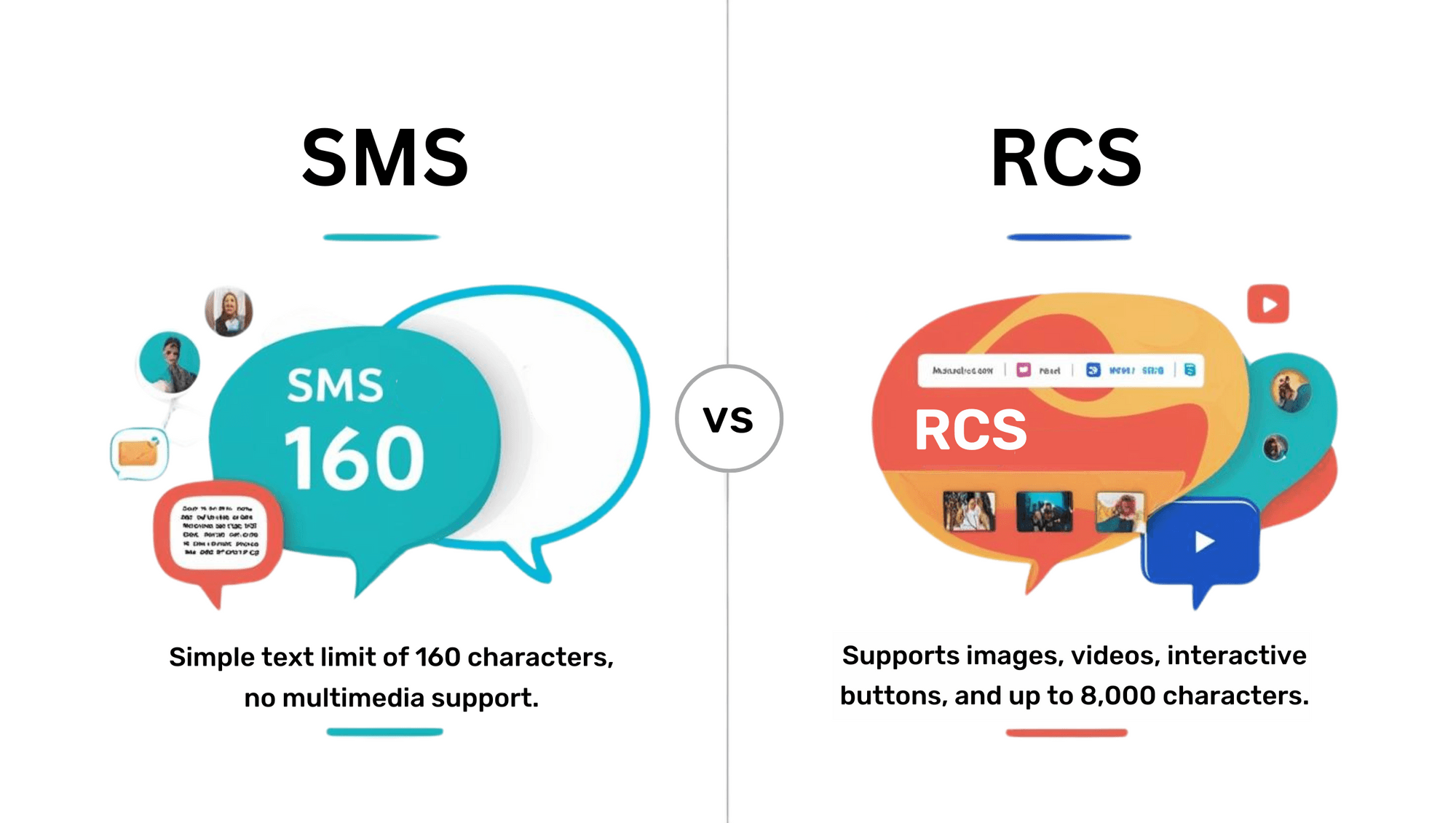Since its inception, SMS has been a cornerstone of mobile communication. It allows users to send short text messages of up to 160 characters. SMS operates over cellular networks, ensuring reliability and universal reach across nearly all mobile devices. However, SMS cannot send multimedia content and offers limited interactivity.
RCS, often dubbed "SMS 2.0," builds upon the foundation of SMS by providing a richer messaging experience. It supports longer messages (up to 8,000 characters), multimedia content (images, videos, and audio), group chats, and interactive elements like buttons and quick replies. RCS operates over data networks (Wi-Fi or cellular), which allows for enhanced features but also requires a stable internet connection.

